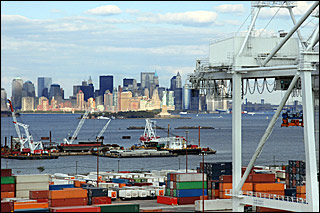Course Description
This course covers, with a focus on both theory and empirics, advanced topics in international trade (as well as inter-regional trade and economic geography.) It includes the study of positive issues, such as: Why do countries trade? What goods do countries trade? What are the implications of openness for the location …
This course covers, with a focus on both theory and empirics, advanced topics in international trade (as well as inter-regional trade and economic geography.) It includes the study of positive issues, such as: Why do countries trade? What goods do countries trade? What are the implications of openness for the location of production, industries, occupations, and innovative activity? And, what impedes trade and why do some countries deliberately erect policy impediments to trade? The course also concerns normative issues, such as: Is trade openness beneficial to a representative agent? And, are there winners and losers from trade and if so, can we identify them? Throughout, these issues are approached in neoclassical settings as well as those with market failures, at the industry-level as well as the firm-level, and in the presence of both mobile and immobile factors (e.g., FDI, offshoring of tasks, multinational firms and immigration).
Course Info
Instructors
Departments
Learning Resource Types
notes
Lecture Notes
assignment
Written Assignments

Shipping containers from around the world arrive in the port of New York. (Image courtesy of the United State Department of Commerce. Image is in the public domain.)








